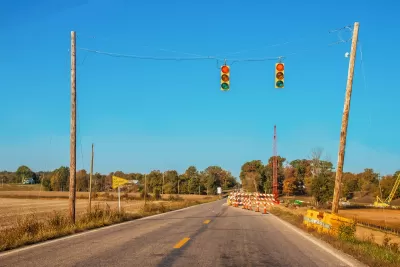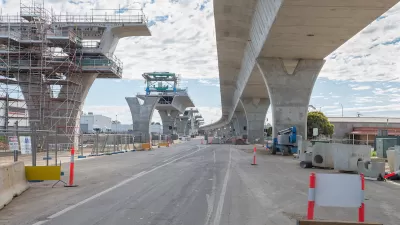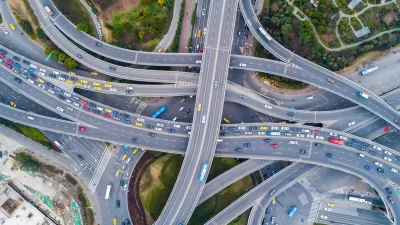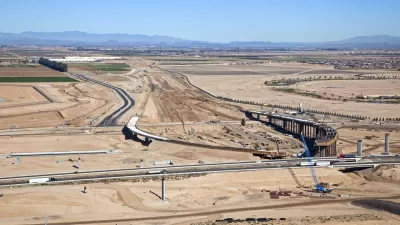This is a largely unintended consequence of states with lower populations and resources focusing on repairing existing roads and infrastructure rather than expanding and building new roads.

There’s a difference in how urban and rural areas invest in their transportation infrastructure — and it’s not what you might think.
According to a report from Transportation for America, “Rural, conservative states seem to be pushing through projects that will yield less carbon emissions in the long term compared to their more progressive urban counterparts.”
As Benton Graham explains in Bloomberg CityLab, this is due to the fact that rural areas are by and large investing in maintenance and repairs of existing roads and infrastructure rather than expansion projects. “Based on projects that have been funded through the bipartisan infrastructure law so far, the report concludes that states like Montana, North Dakota and Wyoming will see a net reduction in emissions compared to the pre-IIJA baseline because they have invested big chunks of their infrastructure money toward simply fixing their existing roads with resurfacing projects.”
Even in states where lowering carbon emissions is not a priority, low populations mean there’s little demand to expand roadways. Meanwhile, some highly urbanized states continue to invest in highway expansion in lieu of other solutions to congestion. “While Florida and Texas fare the worst in future emissions rankings, California is also in the bottom six, and its infrastructure reflects that.”
FULL STORY: The Urban-Rural Divide Over Highway Expansion and Emissions

Study: Maui’s Plan to Convert Vacation Rentals to Long-Term Housing Could Cause Nearly $1 Billion Economic Loss
The plan would reduce visitor accommodation by 25,% resulting in 1,900 jobs lost.

North Texas Transit Leaders Tout Benefits of TOD for Growing Region
At a summit focused on transit-oriented development, policymakers discussed how North Texas’ expanded light rail system can serve as a tool for economic growth.

Alabama: Trump Terminates Settlements for Black Communities Harmed By Raw Sewage
Trump deemed the landmark civil rights agreement “illegal DEI and environmental justice policy.”

How Community Science Connects People, Parks, and Biodiversity
Community science engages people of all backgrounds in documenting local biodiversity, strengthening connections to nature, and contributing to global efforts like the City Nature Challenge to build a more inclusive and resilient future.

Alabama: Trump Terminates Settlements for Black Communities Harmed By Raw Sewage
Trump deemed the landmark civil rights agreement “illegal DEI and environmental justice policy.”

Dear Tesla Driver: “It’s not You, It’s Him.”
Amidst a booming bumper sticker industry, one writer offers solace to those asking, “Does this car make me look fascist?”
Urban Design for Planners 1: Software Tools
This six-course series explores essential urban design concepts using open source software and equips planners with the tools they need to participate fully in the urban design process.
Planning for Universal Design
Learn the tools for implementing Universal Design in planning regulations.
City of Santa Clarita
Ascent Environmental
Institute for Housing and Urban Development Studies (IHS)
City of Grandview
Harvard GSD Executive Education
Toledo-Lucas County Plan Commissions
Salt Lake City
NYU Wagner Graduate School of Public Service





























